Cats are so insanely adorable, and it's no wonder most owners just can't take their hands off their beloved kitty. However, what you consider an expression of love isn't necessarily seen that way by your cat. Here are a few common things that you're doing that your cat probably hates.
1. Hugging
Think about it - humans are built for hugging. Our arms are perfect for encircling our loved ones in a warm embrace. But being held tightly can be a jarring experience for our feline companions.
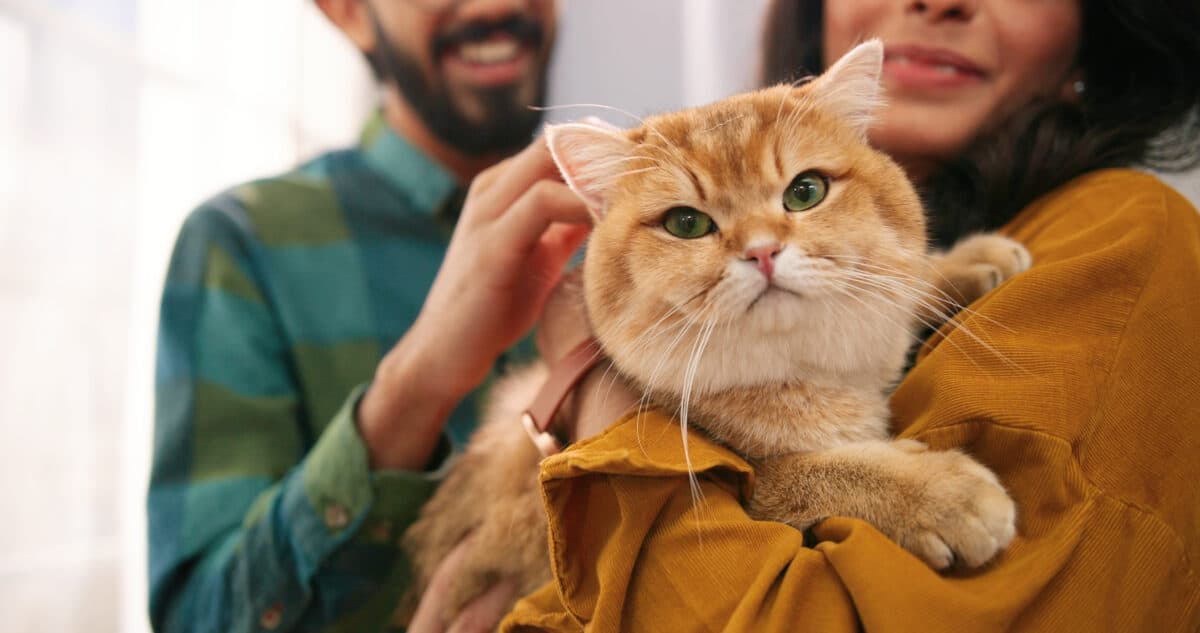
Cats, by nature, value their personal space and autonomy.
A gentle cuddle from a trusted human might be acceptable for some, but even the friendliest of cats might balk at a too-tight hug. Remember, what feels comforting for us can seem restraining to them.
So, before you pull your kitty into a bear hug, consider their temperament. A soft stroke or a gentle pat might be a far more appreciated show of affection.
And remember, every cat is different, so respecting their boundaries and understanding their comfort level is essential.
2. Kissing
Ever seen cats touch noses?
It may resemble a kiss to our human eyes, but it's more of an olfactory investigation for cats.
They're not smooching; they're sniffing each other out, asking the feline version of "Have you been eating tuna?"
Your cat might occasionally approach your face, their nose twitching as they explore your latest scent. But be wary of reciprocating this action without their consent.
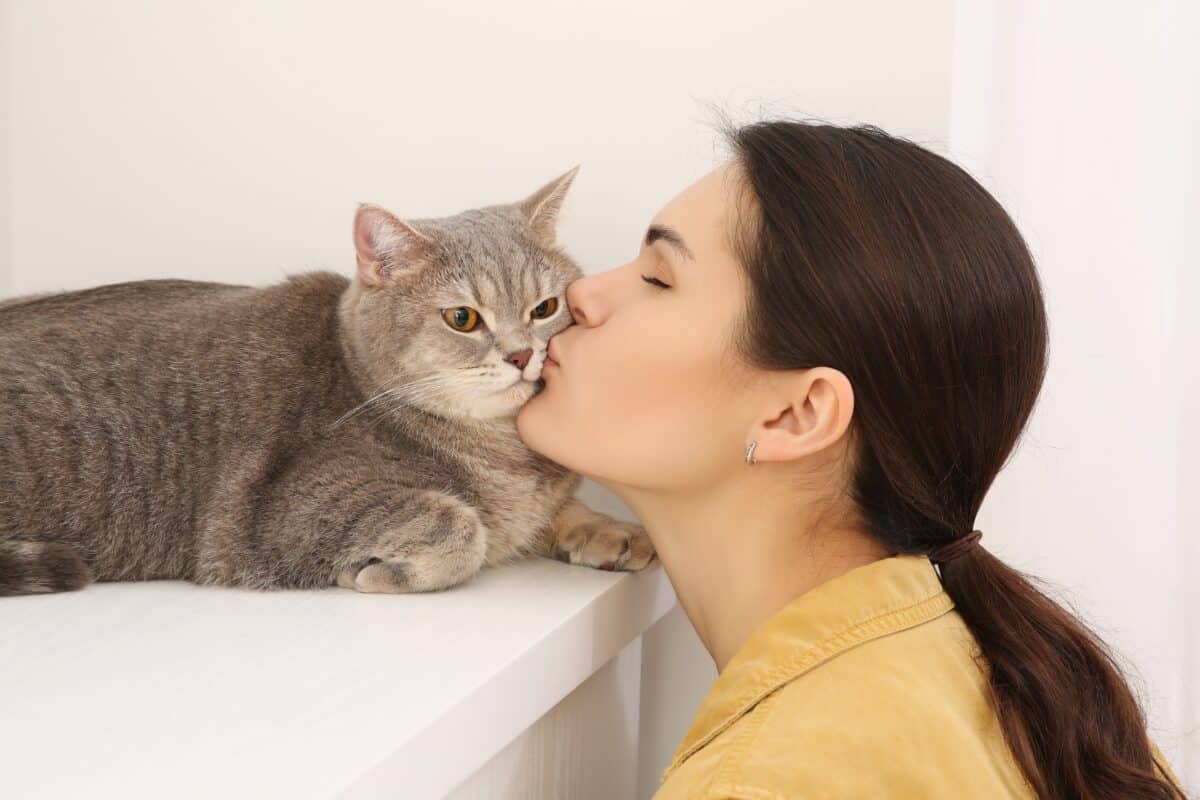
Cats can find the close proximity of a human face intimidating and distressing.
In other words, before you lean in for a kitty 'kiss', ensure your feline friend is comfortable with such closeness.
3. Belly Scratching
While most pet cats enjoy occasional petting, many resent having a human hand reach for their tummy.
When a dog rolls over to expose their stomach, it's an act of submission, and most dogs love it when you move on to scratching their belly.
When a cat rolls over, it's not an act of submission but a testament to their trust in you. They're essentially saying, "I trust you enough to expose my most vulnerable part."
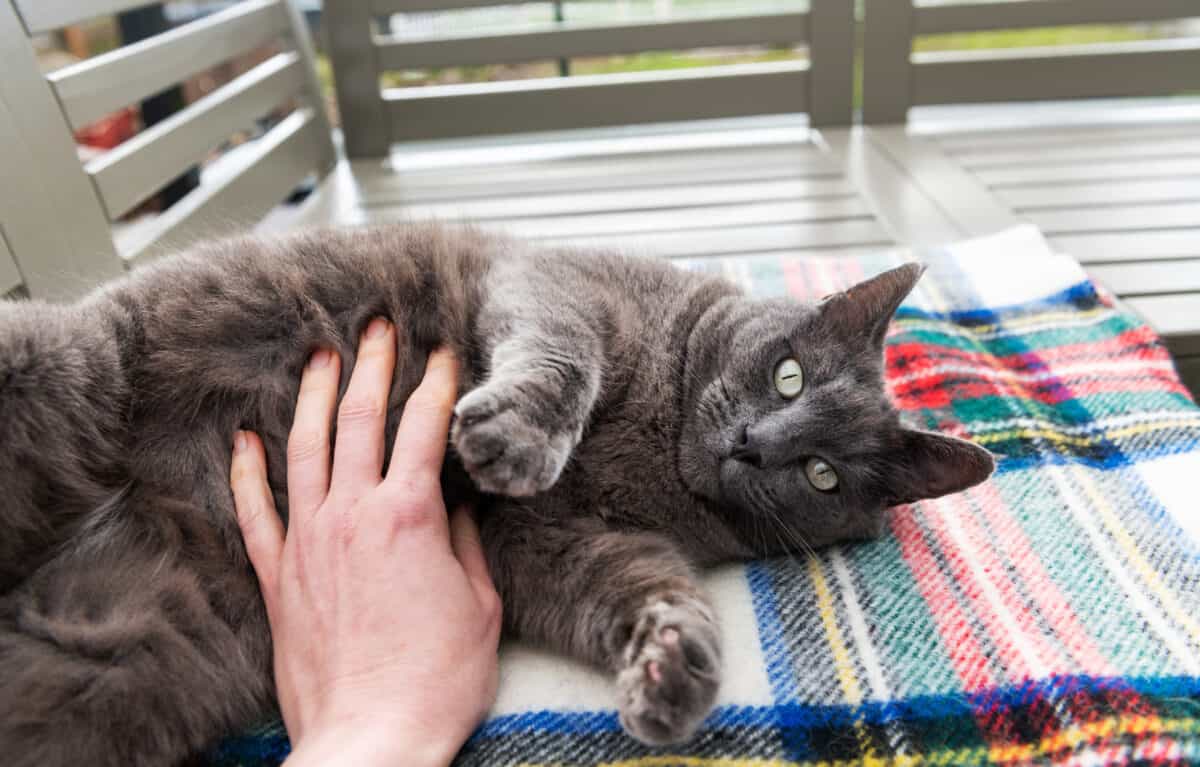
Now, some cats might be comfortable with belly rubs - they're the outliers in the feline world. But remember, cats can change their minds as quickly as a summer storm rolls in.
What might start as a pleasant belly rub could swiftly turn into a flurry of claws and teeth if your cat decides they've had enough.
So, how can you tell when to stop? Pay close attention to your cat's body language.
Are their ears flattening? Is their tail flicking? These could be signs that your cat is growing uncomfortable. The moment you notice these cues, it's best to disengage and give your feline friend some space.
In the end, it's all about respecting boundaries and understanding that every cat is unique. Some may love a good tummy tickle, while others might prefer to keep their bellies off-limits.
4. Being Cradled
We humans have a natural instinct to cradle our young.
This behavior often extends to our smaller pets, like cats. However, it's crucial to remember that our feline friends are not human babies.
From a cat's perspective, being lifted off the ground and held in someone's arms is far from natural.
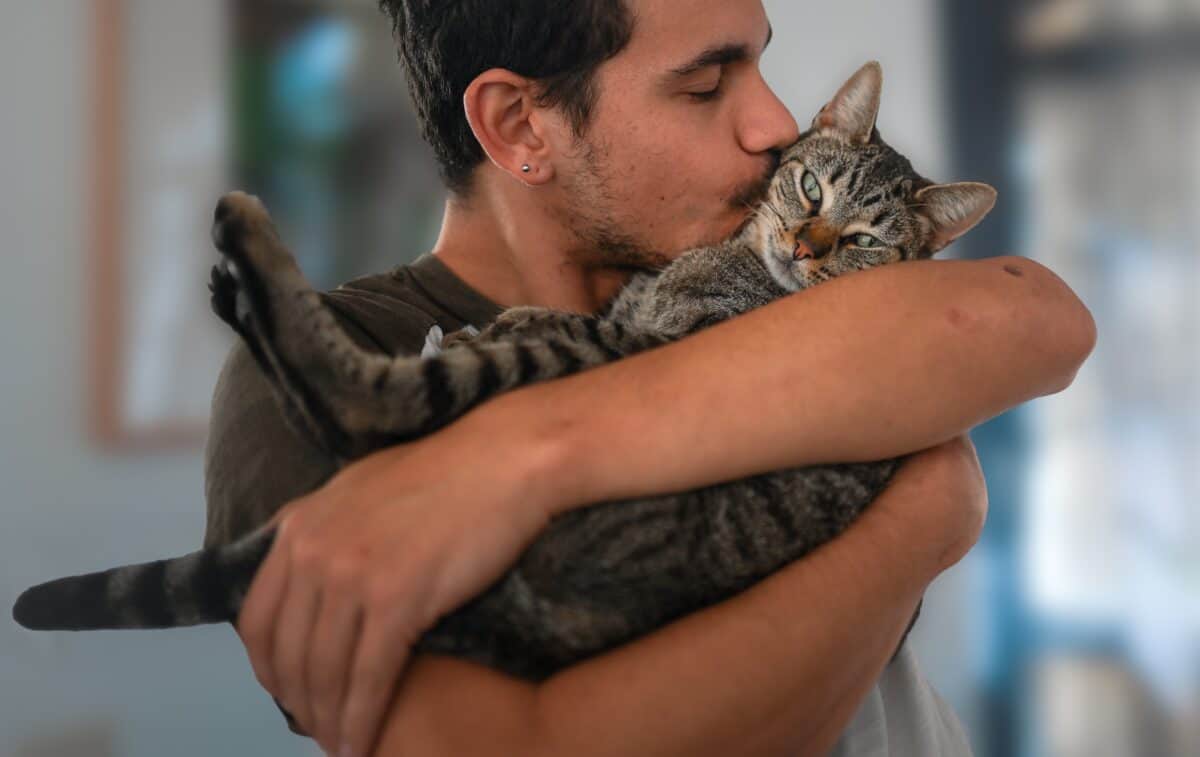
Sure, some cats may tolerate it, particularly those who've been accustomed to being held since kittenhood.
Yet many others may react with an instinctual struggle, using teeth and claws if necessary to escape from your grasp.
And yes, there are the rare few who revel in the experience of being held high and cradled as a baby, but this is not a trait to assume in every cat you encounter.
Read more:
Do Cats Like To Be Petted?
5. Being Held Up In The Air With No Support
There's a common misconception that cats always land on their feet. While it's true that cats have an incredible ability to right themselves in mid-air, it doesn't mean they enjoy being suspended without support.
Being held high in the air can be disorienting and scary for a cat.
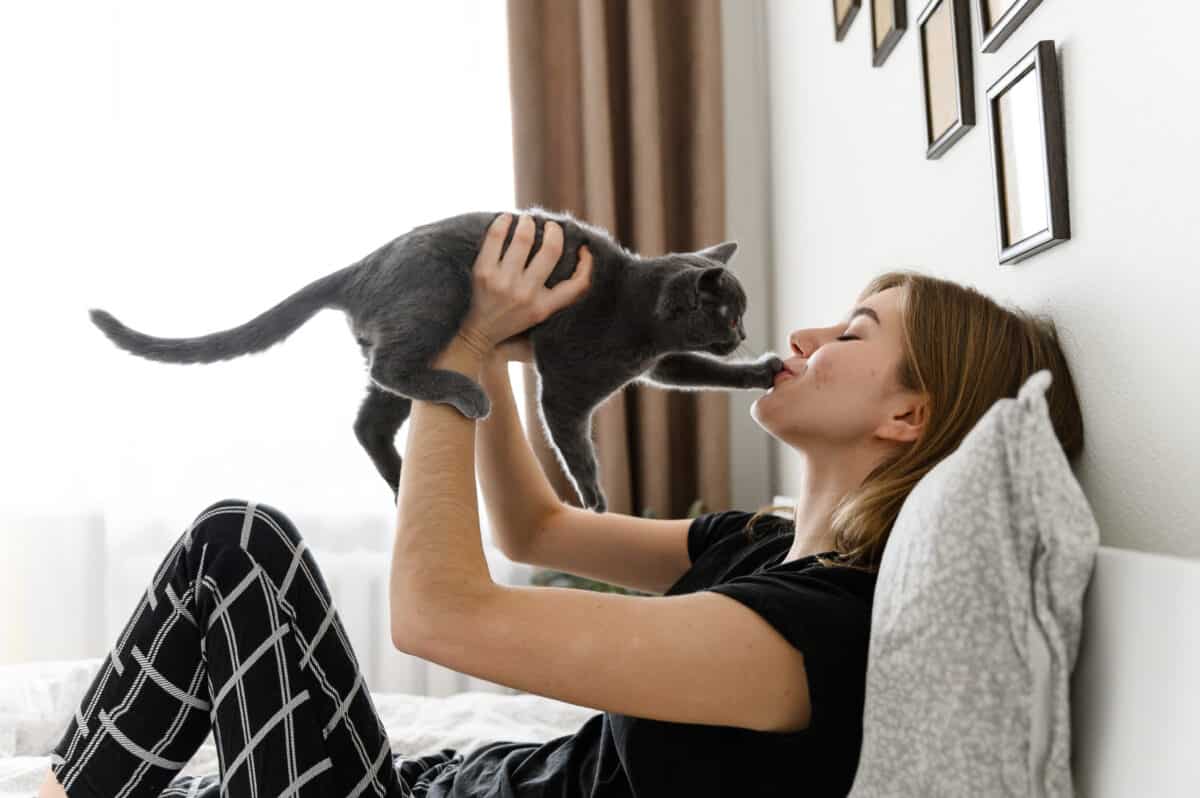
SIGN UP FOR THECATSITE'S EMAIL UPDATES >
If you need to pick up your cat, ensure that you're providing ample support for their body, particularly their back legs and hindquarters.
This gives them a sense of security and helps prevent any struggles or attempts to escape your grip.
Always remember to handle cats with care and respect for their comfort and safety.
6. Getting Too Close
Just like us, cats appreciate their personal bubble. It's not just about the physical distance but also about the familiarity of who is approaching.
If you share a close bond with a cat, they'll likely welcome your presence without much fuss.
On the other hand, if you're a stranger or an acquaintance, it's best to give the cat some space and let them approach you when they feel comfortable.
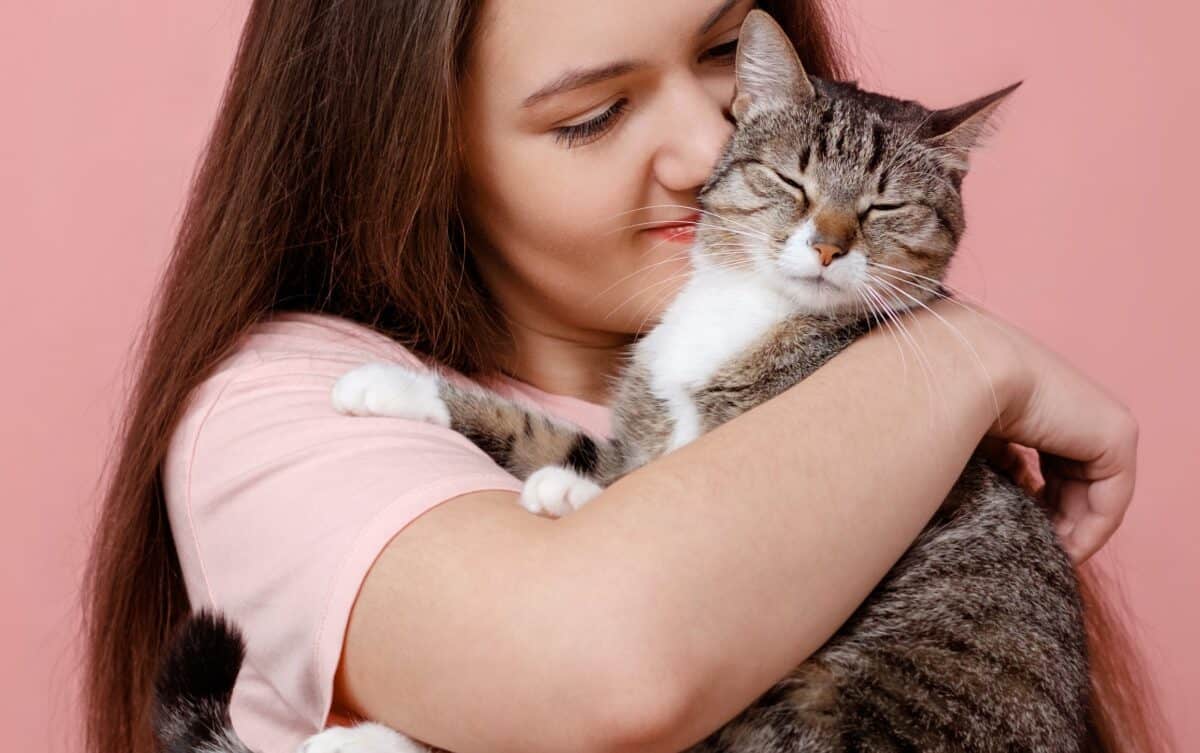
Some cats, by their very nature, are more reserved or shy. Being in close contact with humans, even familiar ones, may make them uneasy.
These cautious felines often choose their moments of closeness wisely. They may only approach their human when they are lying down or asleep, appearing less intimidating.
7. Direct Eye Contact
While a deep gaze into someone's eyes might be considered a romantic gesture among humans, it's a different story in the feline world.
Cats perceive prolonged, direct eye contact as a threat or a sign of dominance.
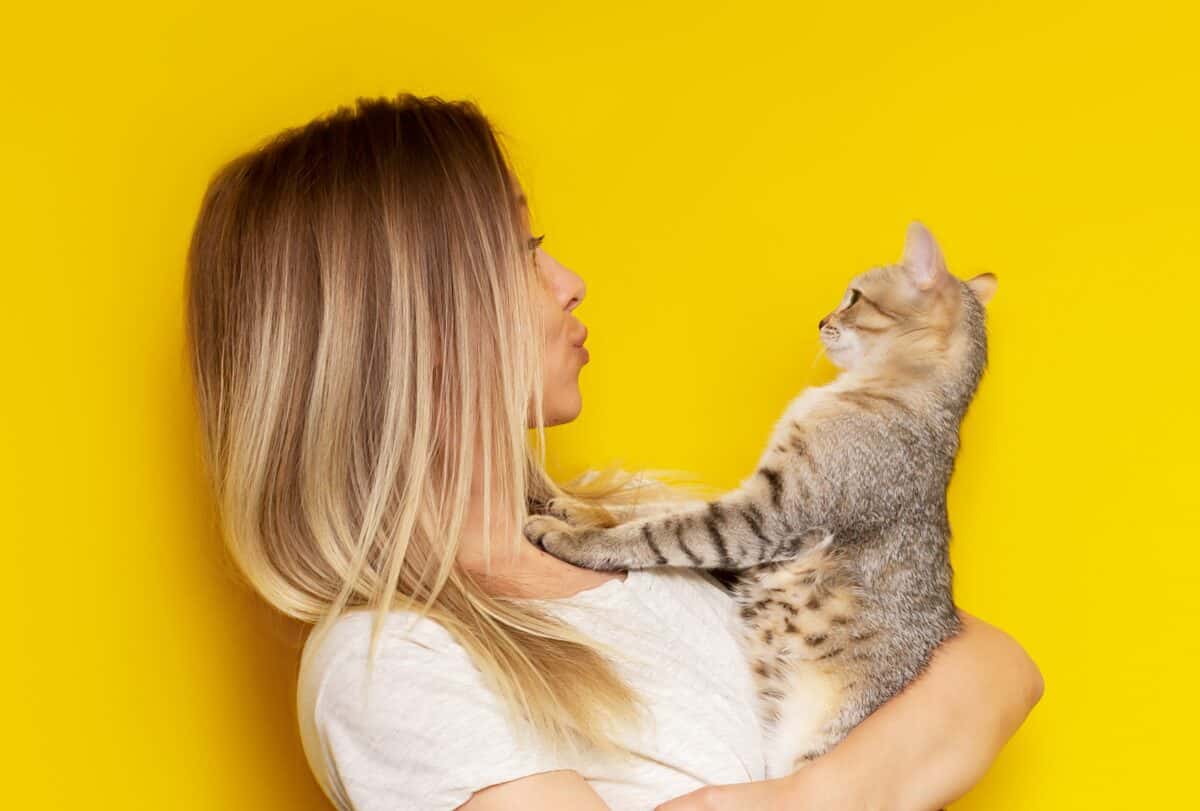
If you've ever locked eyes with a cat, you've probably noticed them breaking away from the stare or even retreating.
When engaging with cats, especially those you're not familiar with, it's best to use soft, sidelong glances.
This communicates respect and poses no threat, helping to foster trust and comfort in your feline friend.
"But my cat loves these things!"
That may absolutely be the case. Cats are individuals with their own preferences, including regarding physical contact with their owners. Many kittens and some adult cats are total "love bugs" who will literally be "in your face", asking for hugs, kisses, belly rubs, and even to be picked up!
However, keep in mind that most adult cats are more likely to prefer physical interaction a tad more distant and—most importantly—on their own terms. No matter how much you want to hug, kiss, and squish your adorable fluffball, you should make absolutely sure that Kitty is indeed an enthusiastic partner.
Never force yourself on a cat—even if he or she seems to "tolerate" your actions. Tolerating isn't good enough. You should aim at making your cat 100% comfortable and happy while you're around. That's the basis of a good feline-human bond.
So, how to tell if your cat hates or loves these acts of friendship?
Our cats can't speak with words, but they can still send us messages.
Some cats are very clear about what they will and won't allow. They use their claws and teeth to send the message in a way that's clear to all. If they know you, and you two are bonded, these attacks are likely to be harmless, with the cat often taking care not to break the skin.
It will still be painful and send the message, but no one will get hurt. However, if you cross the boundaries of a strange cat, you could scare him or her into outright attack mode of the kind that sends you to the first aid box or even the ER.
Some cats are not aggressive at all, and it will take a very extreme situation to get them to attack. Yet they too may be uncomfortable with any of the actions described here. Watch your cat's body language closely and check his or her reactions when giving a hug, a kiss, or trying to pick him or her up.
Is the cat relaxed? Or is that feline body tense, with eyes wide open and pupils enlarged? If you're holding the cat, does he or she purr or squirm in an effort to get out of your grasp?
You can tell if a cat is comfortable with your show of affection or not. Just watch for the cues!
What to do if my cat doesn't like my show of affection?
It's very important to respect your cat's boundaries and not force yourself on her or him. Don't wait for your cat to attack you. Read the feline body language, and if your cat doesn't like something - avoid it.
Allow Kitty to decide if and how you interact and you'll gain his or her trust. Your cat needs to know that you are a source of good things - not bad. With time, some cats mellow out and allow the owner closer physical contact.
Some cats never change and remain distant. That doesn't mean the cat doesn't love you! It just means that for this particular cat, hugging and being held may be off the menu forever. You can still tell that your cat loves you from a multitude of other signs, such as any one of these 23 Signs That Your Cat Loves You
If your cat seems exceptionally scared or distant, you should also read our articles about how to live with a shy cat:
- 10 Must-Know Tips For Happy Living With A Shy Cat
- 16 Top Cat Experts Share Tips For Dealing With Timid Cats
So, how about your cat? Leave us a comment to tell us if your cat loves—or hates—a belly rub or being picked up. Anything else that Kitty won't allow? We want to know about it!
SIGN UP FOR THECATSITE'S EMAIL UPDATES >



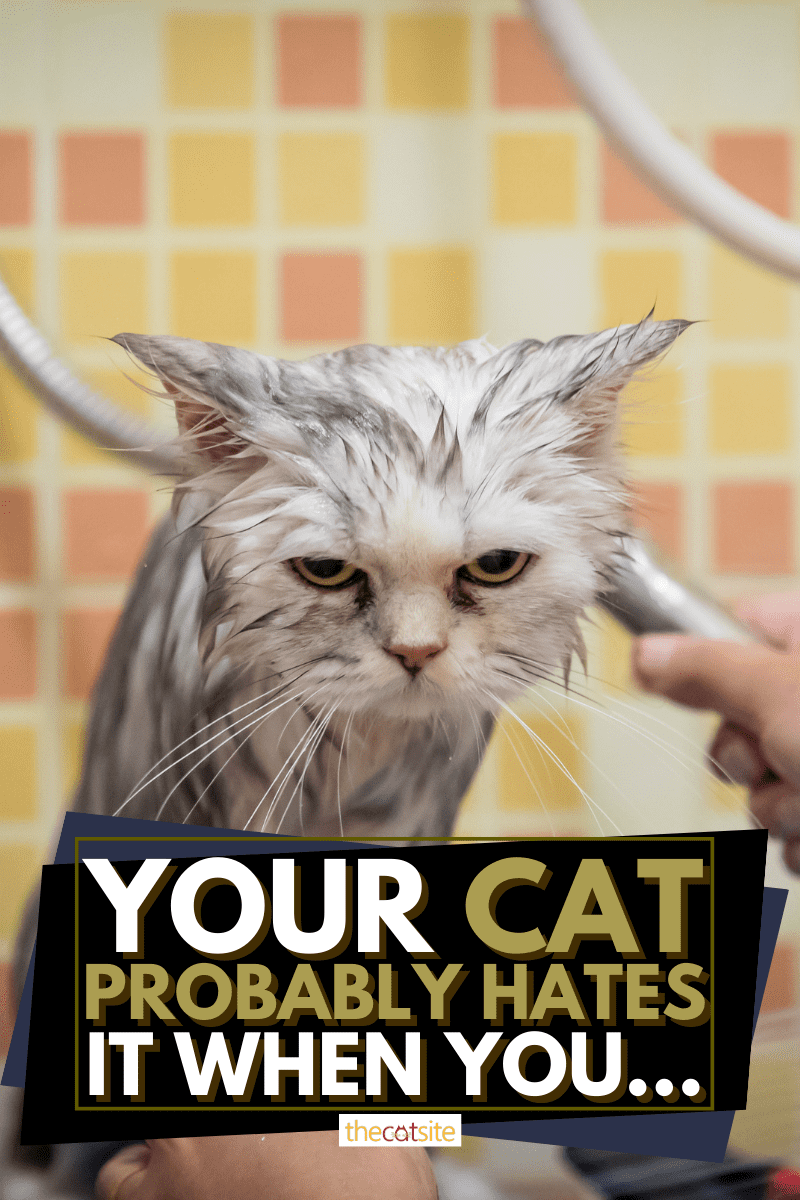

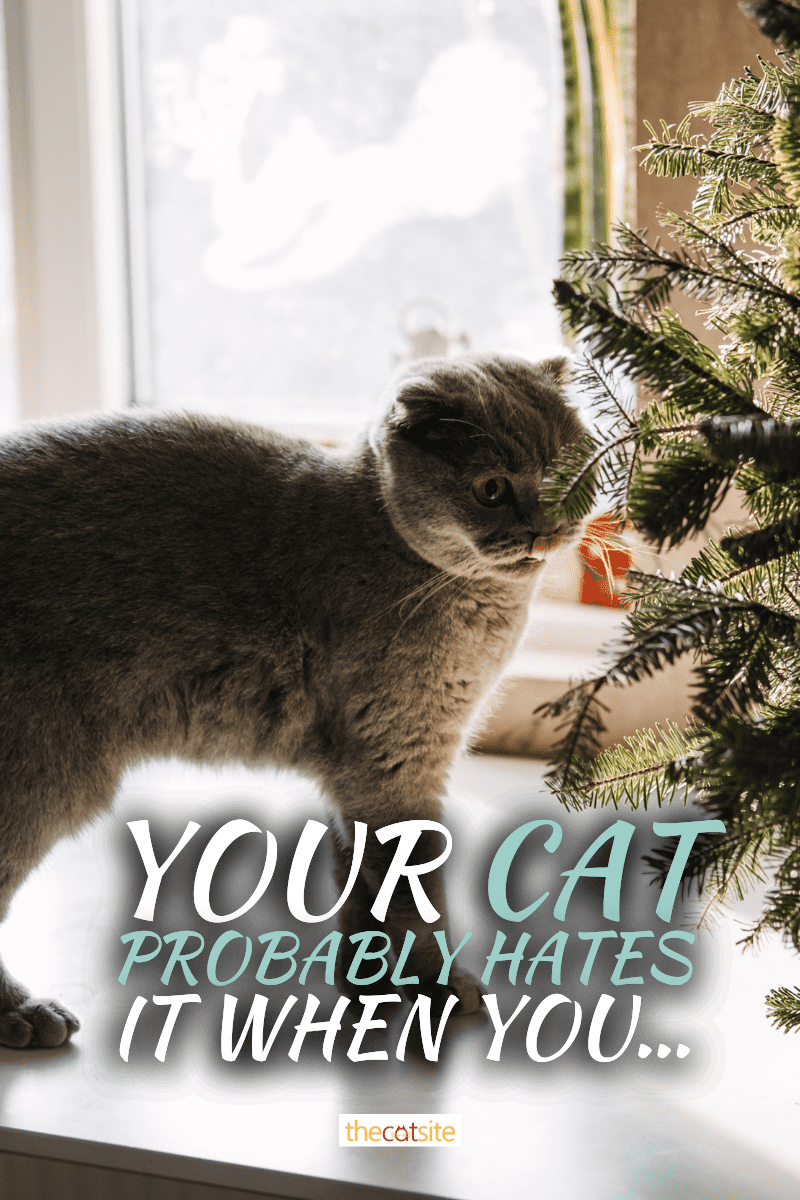

![A gray Chartreux cat sticking out his tongue while looking at the camera, Cat Sticking Their Tongue Out? [Here's Why]](https://thecatsite.com/c/wp-content/uploads/2021/05/A-gray-Chartreux-cat-sticking-out-his-tongue-while-looking-at-the-camera-260x170.jpg)
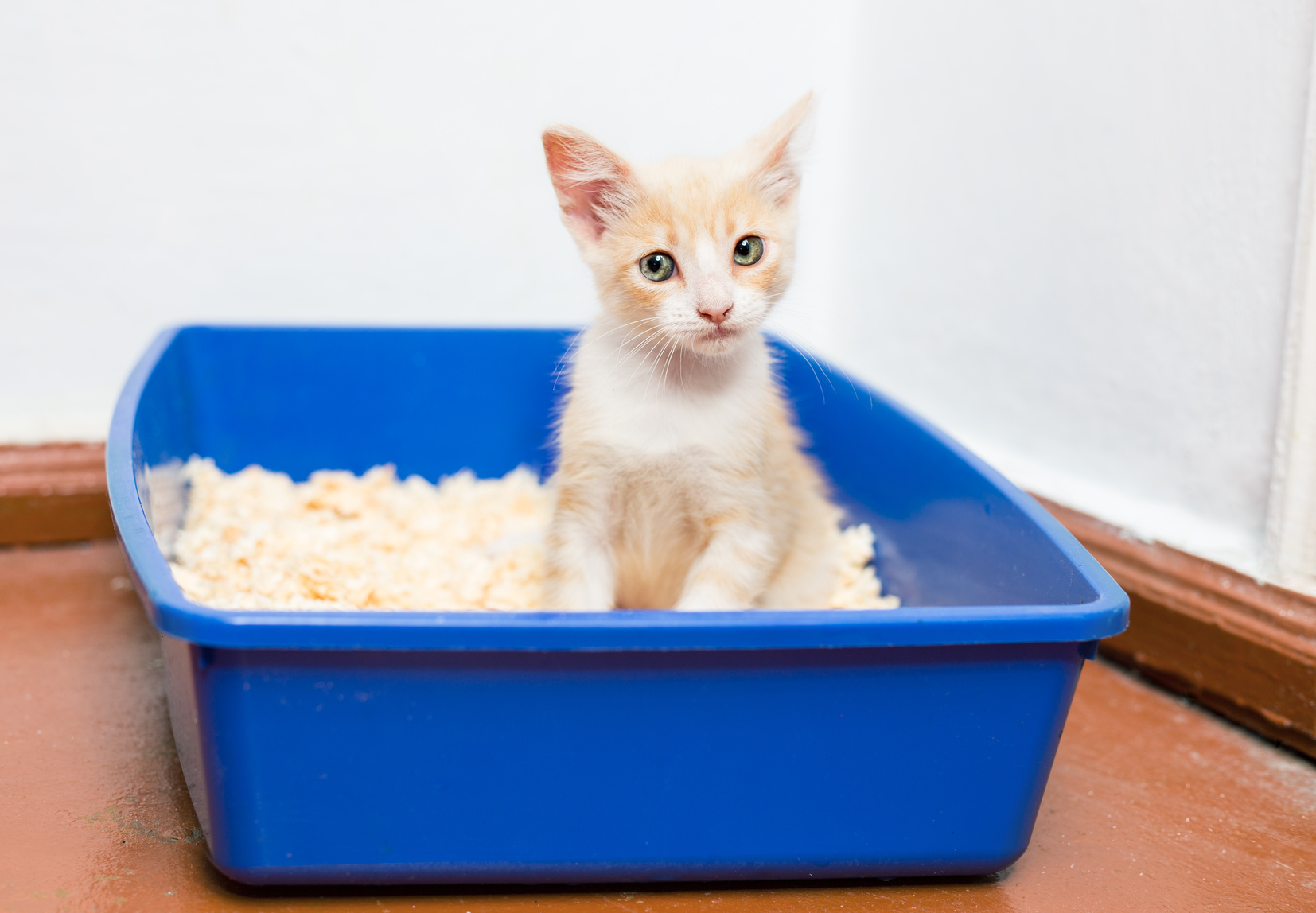
39 comments on “7 Things You’re Doing That Your Cat Probably Hates”